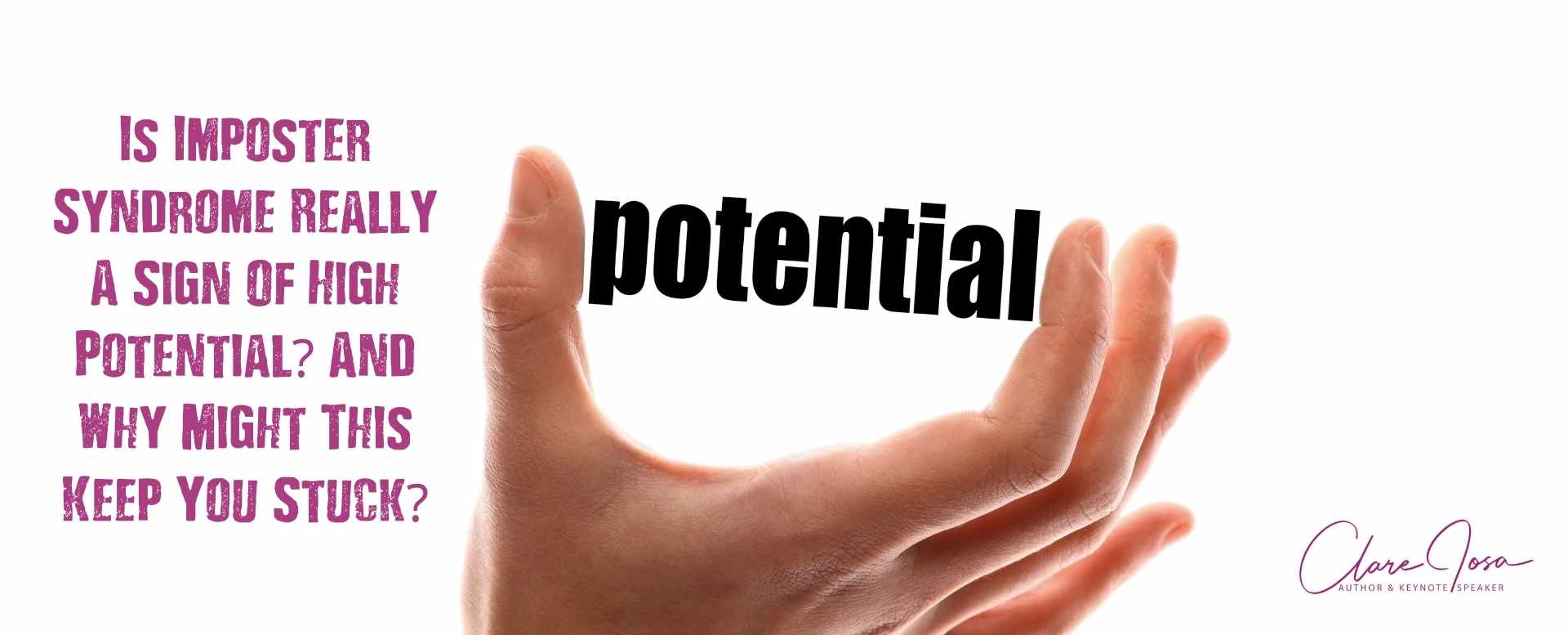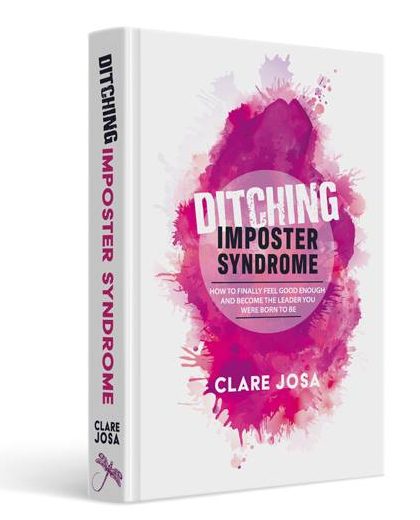So Imposter Syndrome is a sign of high potential? Find out why this one can keep us stuck - for years - with the secret 3am fear of being found out as a fraud.
When we tie Imposter Syndrome in to being about high potential, about our intelligence levels, or about us having superior self-awareness, it becomes two things:
- inevitable, as we stretch and grow
- a badge of honour
If being high-potential or more intelligent or self-aware than others is something that's important to us, then experiencing Imposter Syndrome validates that need. It becomes something to celebrate.
And we're more likely to become attached to it, not wanting to take actions to let it go. And that's despite the damage that Imposter Syndrome can do, in terms of us achieving our potential and actually enjoying the journey.
Over the past 17 years of specialising in helping high-achievers to finally set themselves free from Imposter Syndrome and the other secret, self-imposed glass ceilings that hold us back, there's one thing I'm sure of:
The pain of holding on to Imposter Syndrome is greater than the pleasure of it somehow confirming that we're high-potential or intelligent.
In fact, Imposter Syndrome being a sign of high potential is another one of the hidden Imposter Syndrome myths that can keep people stuck with it, no matter how hard they try to let it go.
So why do so many people cling to this one?
Even Farrah Storr - editor of Elle magazine - wrote about Imposter Syndrome being her 'secret weapon' to deliver excellence, defending wanting to 'keep' it, and it being a good thing.

When we believe, even subconsciously, that there's nothing we can do about Imposter Syndrome, our inner dialogue will do whatever it can to protect us from the idea that it might be incurable and we might be stuck with it forever.
So it latches on to the myths we see on the internet. And one of those that gives us a bit of an ego boost, when we're feeling fragile, is the idea that Imposter Syndrome is actually a positive thing, that Imposter Syndrome is a sign of high potential or superior intelligence - that it means we're not 'broken' or needing 'fixing' or at risk of being 'found out' as not good enough, but somehow better than others, despite Imposter Syndrome.
Why Is It A Problem If We Believe That Imposter Syndrome Is A Sign Of High Potential Or Intelligence?
Because when we subconsciously - or consciously - associate Imposter Syndrome with being a high-achiever, it becomes part of our identity.
"Oh, I have Imposter Syndrome, so I must be a high-achiever! I've got the potential to go far!"
Clearing out Imposter Syndrome will risk us having to also let go of the sense of being high-potential, if the two have become inextricably linked in our sense of self.
"Well, I no longer have Imposter Syndrome, but that means I'm no longer high potential and I must be stupid!"
You can imagine how this might mean that the unconscious mind wants to hold onto Imposter Syndrome, for fear of that fall!
What's The Alternative?
The very first step is simply accepting that this is an Imposter Syndrome myth. Imposter Syndrome isn't really a sign of high potential, intelligence of self-awareness - it's just a story we tell ourselves to feel more ok with the idea that we think Imposter Syndrome is incurable.
When I work with students or clients on setting themselves free from Imposter Syndrome, identifying and clearing out their favourite myths is an incredibly important place to start. And simply the act of realising these myths aren't true can be enough to create a breakthrough in someone's journey towards setting themselves free from that secret 3am self-talk!
If you've already got my book - Ditching Imposter Syndrome - you'll find a whole chapter on the Imposter Syndrome Myths, starting on page 67. If you've got the eBook version, search for "Myths: The Good, The Bad & The Downright Ugly".
And here are some of the most common Imposter Syndrome myths - and what you can do about them! I'll be adding more articles to this list over time, so keep an eye on this page for more.
And I'll also be letting people know, via my Imposter Syndrome Inspiration newsletter.
x Clare
P.S. Want to know which myths have been keeping you stuck? Both the universal and the personal ones? Already got Ditching Imposter Syndrome? The exercise on page 169 (Search: 'Exercise: How To Spot Your Limiting Beliefs') holds the answer.
Simply swap out the part "I haven't done that yet" for "I haven't ditched Imposter Syndrome yet" in the self-mentoring question in that exercise and your favourite subconscious myths will be revealed!
Ditching The Imposter Syndrome Myths That Keep Us Stuck
Want To Find Out About Other Ways We Accidentally Keep Ourselves Stuck With Imposter Syndrome?
imposter syndrome masterclass with clare josa
Three Super-Common Support Strategies That Could Be Making Imposter Syndrome Worse During Lockdown
What every coach, mentor and line manager needs to know.


